 312-704-0771
312-704-0771
Recent Blog Posts
When Can Creditors Lift the Automatic Stay in a Bankruptcy Case?
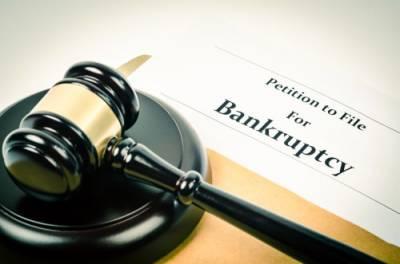 A creditor’s ability to collect debts that are owed will be affected by a debtor’s bankruptcy filing. After a debtor files a bankruptcy petition, the creditor will be subject to an automatic stay that will prevent them from taking any collection actions. However, there are some situations where creditors may be able to file a lift stay motion asking the court to allow them to take action to protect their financial interests. By working with an attorney who has experience in matters involving debt collection, a creditor can make sure they will be able to recover as much of what is owed as possible.
A creditor’s ability to collect debts that are owed will be affected by a debtor’s bankruptcy filing. After a debtor files a bankruptcy petition, the creditor will be subject to an automatic stay that will prevent them from taking any collection actions. However, there are some situations where creditors may be able to file a lift stay motion asking the court to allow them to take action to protect their financial interests. By working with an attorney who has experience in matters involving debt collection, a creditor can make sure they will be able to recover as much of what is owed as possible.
Relief From the Automatic Stay
In general, a creditor may be able to lift the automatic stay if they can show that they will suffer immediate and irreparable losses due to their inability to collect debts. The court may allow the automatic stay to be lifted in multiple situations, including:
What Restrictions Does the FDCPA Place on Debt Collectors?
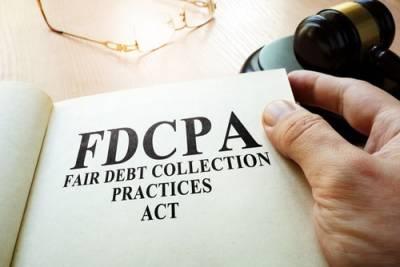 Creditors lend money to debtors under the presumption that these debts will be repaid. If a debtor fails to make the required payments, creditors can take action to collect the debts that are owed. However, there are a variety of laws that apply to debt collection, including the Fair Debt Collection Practices Act (FDCPA). Creditors and collection agencies will need to make sure they are in compliance with these laws, and they can make sure they are doing so by working with an experienced debt collection attorney.
Creditors lend money to debtors under the presumption that these debts will be repaid. If a debtor fails to make the required payments, creditors can take action to collect the debts that are owed. However, there are a variety of laws that apply to debt collection, including the Fair Debt Collection Practices Act (FDCPA). Creditors and collection agencies will need to make sure they are in compliance with these laws, and they can make sure they are doing so by working with an experienced debt collection attorney.
Restrictions on Debt Collection Activities
In general, the FDCPA prohibits creditors and debt collectors from engaging in unfair or harassing actions against debtors. The restrictions that apply under this law include:
- When a debtor can be contacted - Creditors cannot contact debtors at times that are known to be inconvenient. The law specifically prohibits calls made to a debtor before 8:00 a.m. or after 9:00 p.m. in the time zone where the debtor is located. However, there are some cases where creditors may receive permission from a court or a debtor to contact a person outside of the hours that are normally allowed.
When Can Second Mortgagees Recover Payments Through Foreclosure?
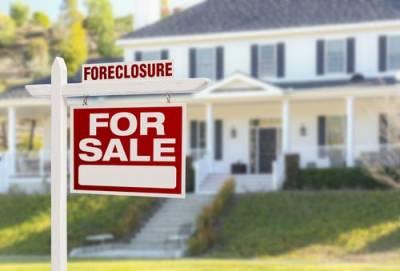 Mortgage lenders have options for ensuring they receive the amount owed from homeowners, and when a person defaults on their mortgage payments, a lender can initiate foreclosure proceedings. However, second mortgagees may be unsure about their options in these cases, including whether they can collect payment following a short sale or another situation where the sale of a home will not fully cover the amount owed. By working with an attorney who understands laws that affect debt collection, second mortgagees can determine their best options for receiving payments following a foreclosure.
Mortgage lenders have options for ensuring they receive the amount owed from homeowners, and when a person defaults on their mortgage payments, a lender can initiate foreclosure proceedings. However, second mortgagees may be unsure about their options in these cases, including whether they can collect payment following a short sale or another situation where the sale of a home will not fully cover the amount owed. By working with an attorney who understands laws that affect debt collection, second mortgagees can determine their best options for receiving payments following a foreclosure.
Foreclosure and Subordinate Loans
In a second or subsequent mortgage or home equity line of credit (HELOC), a borrower will be taking out a loan against the equity they own in their home. Most of the time, these loans are considered to be subordinate loans, and the first mortgage will have the priority claim to the property. If a homeowner defaults on their first mortgage, the lender may foreclose on the home. Second mortgagees may also initiate foreclosure proceedings if the homeowner has remained current on their first mortgage but has defaulted on subordinate loans.
When Can a Creditor Object to a Bankruptcy Reorganization Plan?
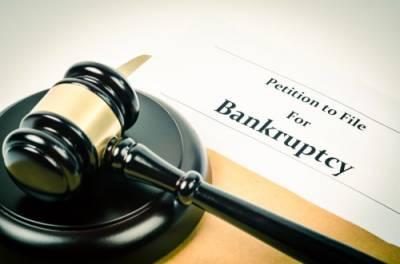 When a debtor files for bankruptcy, this can put creditors in a difficult position. Loans from creditors to debtors are made with the presumption that the debtor will repay the amount that is owed. While bankruptcy may relieve debtors of their obligations to repay certain debts, it will also allow for some of these debts to be repaid. When an individual files for Chapter 13 bankruptcy, or when a business files for Chapter 11 bankruptcy, the debtor will propose a reorganization/repayment plan in which they will pay off certain debts. If this plan will not properly address some of the debts that are owed, creditors may object to the confirmation of the plan. By understanding when these objections can be made and the potential reasons for objecting, a creditor can ensure that its financial interests will be protected.
When a debtor files for bankruptcy, this can put creditors in a difficult position. Loans from creditors to debtors are made with the presumption that the debtor will repay the amount that is owed. While bankruptcy may relieve debtors of their obligations to repay certain debts, it will also allow for some of these debts to be repaid. When an individual files for Chapter 13 bankruptcy, or when a business files for Chapter 11 bankruptcy, the debtor will propose a reorganization/repayment plan in which they will pay off certain debts. If this plan will not properly address some of the debts that are owed, creditors may object to the confirmation of the plan. By understanding when these objections can be made and the potential reasons for objecting, a creditor can ensure that its financial interests will be protected.
Issues Affection Objections to Confirmation
Can an Auto Lender Pursue a Deficiency Judgment After a Repossession?
 Car loans are some of the most common types of debts held by consumers, and in most cases, auto lenders have options for recovering what is owed when a debtor fails to meet their obligations. While a lender may be able to repossess a vehicle following a default by a debtor, this may not fully cover the amount owed on the loan. In these cases, lenders may pursue a deficiency judgment against the debtor. Lenders should be aware of the potential issues that may affect them in these situations.
Car loans are some of the most common types of debts held by consumers, and in most cases, auto lenders have options for recovering what is owed when a debtor fails to meet their obligations. While a lender may be able to repossess a vehicle following a default by a debtor, this may not fully cover the amount owed on the loan. In these cases, lenders may pursue a deficiency judgment against the debtor. Lenders should be aware of the potential issues that may affect them in these situations.
Issues That May Affect Deficiency Judgments
After a lender repossesses a vehicle, it may sell the vehicle through an auction or other methods. If the amount received from selling the vehicle was less than the amount that the debtor owed on their auto loan, the lender may attempt to collect the additional amount owed, as well as costs related to the repossession, through a deficiency judgment. Lenders should be aware of issues that may affect their ability to collect a deficiency judgment, which may include:
How Are Debts Prioritized in a Bankruptcy Case?
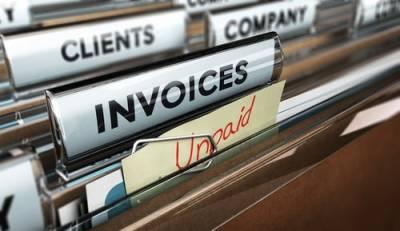 Creditors will often need to address situations where debtors do not pay the debts they owe. While creditors can often take action to recover what is owed through debt collection practices, they may be concerned about their ability to collect debts when a debtor files for bankruptcy. In these cases, creditors will need to understand how different types of debts are prioritized and when they may be able to recover what is owed.
Creditors will often need to address situations where debtors do not pay the debts they owe. While creditors can often take action to recover what is owed through debt collection practices, they may be concerned about their ability to collect debts when a debtor files for bankruptcy. In these cases, creditors will need to understand how different types of debts are prioritized and when they may be able to recover what is owed.
Bankruptcy and Priority of Claims
A creditor’s ability to recover debts during a bankruptcy case will depend on their type of claim and whether the debtor is filing for Chapter 7 or Chapter 13 bankruptcy. When a debtor files for Chapter 7, the bankruptcy trustee will liquidate their non-exempt assets, and the proceeds will be distributed among the creditors. When a debtor files for Chapter 13, they will submit a proposed repayment that will last for a period of three to five years, and these payments will be distributed among the creditors whose debts are included in the plan.
Lender Requirements in Loan Modifications Related to COVID-19
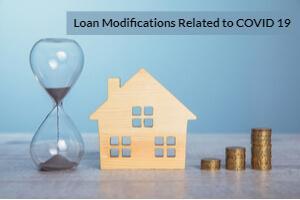 For most of 2020 and 2021, mortgage lenders have been unable to pursue foreclosures in cases where homeowners have federally-backed loans. The CARES Act placed a moratorium on foreclosures, and it also allowed borrowers who have been affected by the COVID-19 pandemic to receive a forbearance of mortgage payments. This moratorium ended on July 31, 2021, allowing lenders to pursue foreclosures in certain cases. However, the Consumer Financial Protection Bureau (CFPB) has created new rules requiring lenders to meet certain requirements before initiating foreclosure proceedings, including providing loan modification options for borrowers.
For most of 2020 and 2021, mortgage lenders have been unable to pursue foreclosures in cases where homeowners have federally-backed loans. The CARES Act placed a moratorium on foreclosures, and it also allowed borrowers who have been affected by the COVID-19 pandemic to receive a forbearance of mortgage payments. This moratorium ended on July 31, 2021, allowing lenders to pursue foreclosures in certain cases. However, the Consumer Financial Protection Bureau (CFPB) has created new rules requiring lenders to meet certain requirements before initiating foreclosure proceedings, including providing loan modification options for borrowers.
Requirements for Mortgage Loan Servicers
Under the CFPB’s rule, mortgage lenders and servicers will need to meet certain requirements before they can initiate a foreclosure prior to January 1, 2022. A borrower must be given the opportunity to complete a loss mitigation application, and after an application has been submitted, a lender can only pursue foreclosure if the borrower is not eligible for loss mitigation, rejects all loss mitigation options, or does not meet their requirements to complete a loan modification. Foreclosures can also be initiated if a property has been abandoned or if a borrower does not respond to a lender’s loss mitigation outreach attempts for 90 days.
When Can Creditors Use Detinue When Repossessing Property?
 When a borrower defaults on a loan, a creditor has the right to repossess the collateral used to secure the loan. This option may be used by auto lenders or other creditors, and a vehicle or other property may be repossessed if a borrower fails to make the required payments. However, a debtor may attempt to avoid repossession by hiding a vehicle or other property, keeping it locked inside a garage, or moving it to a location where it cannot be accessed. In these situations, a creditor may be able to file a detinue complaint against the borrower, asking the court to require the debtor to turn over the property or face consequences.
When a borrower defaults on a loan, a creditor has the right to repossess the collateral used to secure the loan. This option may be used by auto lenders or other creditors, and a vehicle or other property may be repossessed if a borrower fails to make the required payments. However, a debtor may attempt to avoid repossession by hiding a vehicle or other property, keeping it locked inside a garage, or moving it to a location where it cannot be accessed. In these situations, a creditor may be able to file a detinue complaint against the borrower, asking the court to require the debtor to turn over the property or face consequences.
When Is Detinue Appropriate?
Typically, creditors use the legal process of replevin to repossess property. In these cases, a creditor will be required to post a bond, and a court order will be issued giving the sheriff the authority to seize the property. A representative of the creditor will usually need to accompany the sheriff when executing the repossession order. However, if the property cannot be located, a replevin action may not be appropriate.
Bankruptcy and Cramdown Loans
 One of the most frustrating issues a creditor faces is when a customer stops paying their bills and their past due balance begins to accumulate despite the creditor’s attempts at collecting. That frustration can rise even more if the customer files for bankruptcy. When a person files for bankruptcy, the courts issue an injunction, referred to as an automatic stay, that halts all debt collection activity. Creditors who face this situation should speak to a Chicago debt collection attorney to find out what rights they have when it comes to collecting what the customer owes them.
One of the most frustrating issues a creditor faces is when a customer stops paying their bills and their past due balance begins to accumulate despite the creditor’s attempts at collecting. That frustration can rise even more if the customer files for bankruptcy. When a person files for bankruptcy, the courts issue an injunction, referred to as an automatic stay, that halts all debt collection activity. Creditors who face this situation should speak to a Chicago debt collection attorney to find out what rights they have when it comes to collecting what the customer owes them.
Bankruptcy Options
When an individual files for personal bankruptcy, they usually have two options, Chapter 7 or Chapter 13. A Chapter 7 bankruptcy is often recommended for people who do not own a home since it involves selling off any property the person has in order to pay off debts, although there are some exemptions to what type of property can be sold. It is often referred to as liquidation bankruptcy.
Benefits of Hiring a Chicago Debt Collection Attorney vs. Collection Agency
 At one time or another, most businesses will find themselves dealing with a client or customer who – for whatever reason – refuses to pay a bill. No matter what attempts the business makes to collect what is due them, the debtor still will not pay. There are several options a company has at this point, including hiring a collection company or retaining the services of a debt collection attorney.
At one time or another, most businesses will find themselves dealing with a client or customer who – for whatever reason – refuses to pay a bill. No matter what attempts the business makes to collect what is due them, the debtor still will not pay. There are several options a company has at this point, including hiring a collection company or retaining the services of a debt collection attorney.
Given the state and federal laws that have been put in place to protect debtors, it is important for creditors to make the right choice when turning to a third party for assistance.
What Is the Difference Between a Debt Collection Attorney and a Collection Agency?
When deciding which is the best choice, a business needs to determine how far they are willing to go to collect the debt. Is this debt something your company will pursue in civil litigation, if necessary? Although both a collections attorney and a collection agency have the same end goal, there are several critical differences to be aware of on their ability to reach that goal.






